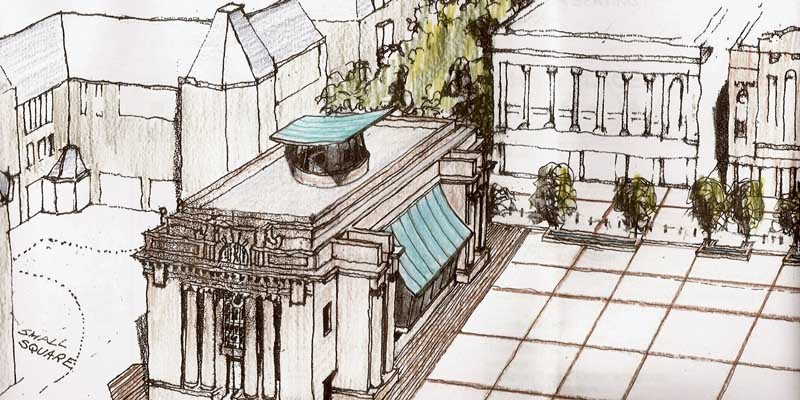Objectors to plans to replace Perth City Hall with a civic square say claimed economic benefits are ”pure speculation”.
Perth City Centre Campaign (PCCC) members, who would like to see a section of the listed Edwardian building retained, enlisted the services of a ”forensic accountant” who has concluded the projections put forward by the council to back up their plan do not stack up.
”Based on current ‘guesstimates’, total demolition of the city hall would be an act of cultural vandalism that would deprive Perth of a historic building, a valuable piece of real estate and a great asset for the future,” said former MEP James Provan, chairman of the PCCC.
The attack on the council’s perceived benefits of demolition is the latest chapter in a war of words between those who see the hall as a redundant burden and those who regard the venue with great affection.
Councillors will meet in a month’s time to discuss whether to demolish the hall and build a square, and if they favour this option as expected Historic Scotland will step in to have their say on its future.
The council defended the civic square plan, saying it would bring ”significant benefits to economic growth” if approved.
Outlining the PCCC’s position, Mr Provan said: ”Perth City Centre Campaign was originally formed to try to find a compromise for those wishing to preserve the city hall, and those who sought total demolition.
”We strongly believe that we have achieved that objective and at the same time have pushed the idea of creating a ‘city centre’ of which the people of Perth could be proud.
”There is no doubt in the minds of those in the group that with properly focused use (of the western part of the building to be retained), a city centre and an open square will add significantly to the overall economic benefit of our area.
”According to the Perth and Kinross officials’ report, the option for total demolition and re-use of the site as a civic square/public space creates ‘greater quantifiable benefits’ to the local economy than any of the alternative options.
”The conclusion of the Locum Consulting report is, in our opinion, flawed when suggesting that full demolition and the creation of a civic square is a ‘clear winner under the adopted appraisal exercise’ because the partial demolition option calculations fail to recognise the value generated to the local economy by the residual square.”
Continued…
PCCC members said they were fortunate to have a ”forensic accountant of international repute” volunteer to look at the figures of the options that were floated by the council.
”The method used by the council’s consultants to calculate economic benefit is based primarily on the additional number of visitors who would be attracted by each option. We have no dispute with that.
”But the PCCC analysis has uncovered the fact that the additional visitor numbers used to justify total demolition are virtually double the number of visitors of any of the other options.
”This is pure speculation and PCCC strongly contests the basis for this assumption, especially as it is the only justification for the selection of that option.”
In reply, a council spokesman said: ”An independent appraisal by expert consultants found that a city square on the site of the city hall will deliver significant benefits to economic growth in the city centre and to the wider community.
”The appraisal also concluded that other options for the building, including the partial demolition option, would require significant public subsidy and would not deliver as significant economic or community benefits.
”The demolition of the city hall and its replacement with a city square was also the option most supported by the public and local businesses during an exhaustive consultation process carried out by the council last year.
”The new city square will be a major economic driver for Perth and Kinross as it becomes a venue for regular markets and national and local cultural and social events, bringing investment and jobs to the area.
”Currently, the council is following due process by applying for listed building and planning consent and these proposals are expected to be considered by the development control committee in the autumn.
”If they are approved, they will then be submitted to the Scottish Government for a final decision, given the council’s interest in the planning application.
”Finally, if Scottish ministers agree to grant consent, we would hope to start work as soon as possible and have the new city square completed within two years of their approval.”
